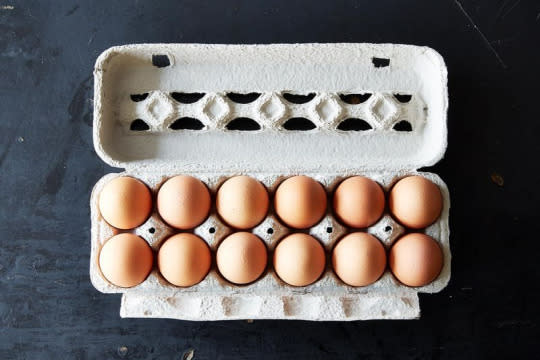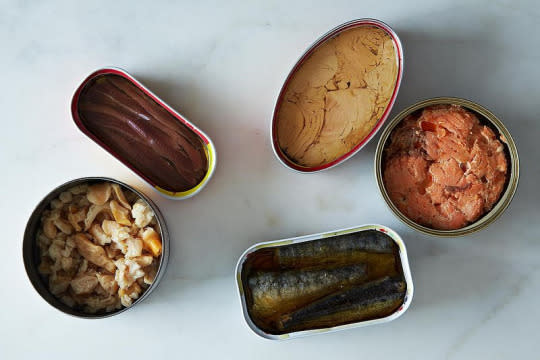What Does ‘Natural’ Mean —and What Should It Mean?
If, on a trip to the grocery store, you have been flummoxed by the sheer number of options—organic! free-range! low-sodium! natural!—go ahead and raise your hand. (You may not be able to see all of our hands raised, but you’re not alone.)
Related: Another Case for Buying Organic Chicken
Standing in front of the refrigerated case of eggs, for example—where the size and price of the eggs themselves are likely no longer the main consideration in your decision-making process—can be something of a dizzying experience.

Are these eggs “natural?” (Photo: James Ransom/Food52)
While some of the terms that pop up on the labels we see at the grocery store, like “organic,” are strictly defined, others, like “natural,” are more abstract. In fact, the Federal Drug Administration has only a very loose, loophole-happy working definition for “natural”:
“The FDA has considered the term “natural” to mean that nothing artificial or synthetic (including all color additives regardless of source) has been included in, or has been added to, a food that would not normally be expected to be in that food.”
Related: Hold Onto Your Memories: Campbell’s Chicken Noodle is Changing

Is anything “natural?” (Photo: James Ransom/Food52)
Related: New, Sad Reasons to Cut Down on Processed Meat
Until now! The FDA is asking for the public to give their input as to what they want in a “natural” label. So we asked some of the Food52 team what they think “natural” means—and what it should mean.
Riddley said that even though she has learned that “natural” is mostly an interpretive label, she’s more inclined to buy a product labeled “natural” or “all natural” over one that’s not: “It’s my inner hippie/environmental person.”
For Amanda S., “natural” is a middle ground between “conventional” products and “organic” ones—"natural" eggs are “not as expensive as the $7 or $8 free-range or organic eggs, but a little less scary and guilt-inducing than the everyday hormonally-charged ones.” She also said that “more often than not, the world ‘natural’ just feels like it means nothing, a gimmick that I don’t buy into. Natural crackers? Natural beer? Natural popcorn? It is so unspecific as to be both unhelpful and unconvincing.”
Lindsay-Jean assumes that “natural” “means there aren’t artificial flavors or added colors or strange synthetic ingredients—though as Riddley alluded to, that isn’t necessarily true… I, too, am more inclined to buy them. But at the same time I’m a little skeptical, and when I see it I wonder: Is there a better label or certification that I should be looking for with this type of product?”
Even though Sarah knows that “natural” is largely unregulated, “I still find myself inclined to buy—or consider buying—the 'natural’ products (it’s enough to make me second-guess my decision, but usually not enough to sway that decision one way or the other). If I’m wondering whether food is natural in terms of whole ingredients that are not artificial, I’ll read the ingredient list.”
And Ali pointed us to a New York Times article by Michael Pollan, “Why 'Natural’ Doesn’t Mean Anything Anymore,” that she found eye-opening.
The FDA wants our input! What does “natural” mean to you? How do you think it should be defined? What would you want in a “natural” food? Tell us in the comments below—and then leave a comment at the bottom of this FDA page.
More on Food52:
Would You Want a Raw Meat Delivery?
The Earliest We Can Expect an Avocado Emoji is 2016
Algae Oil Is for Real—Here’s How to Use It
By Caroline Lange.
